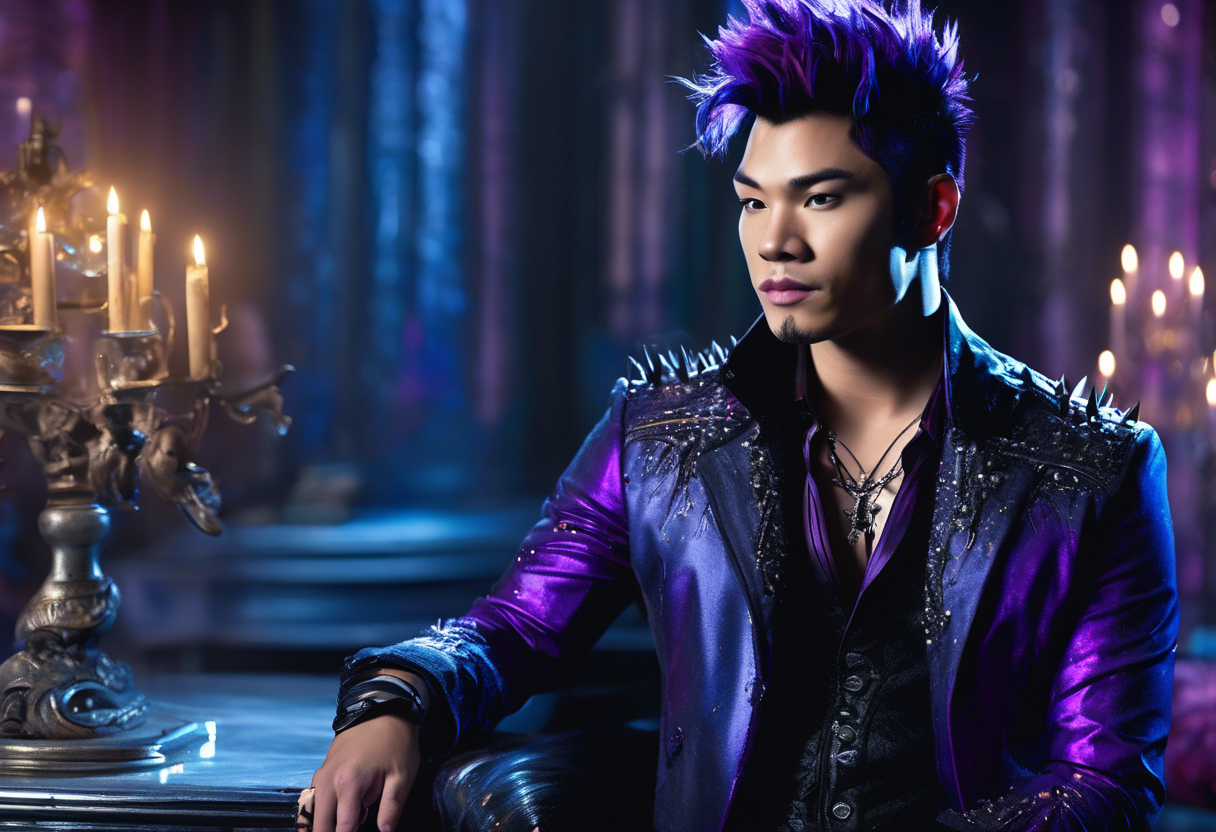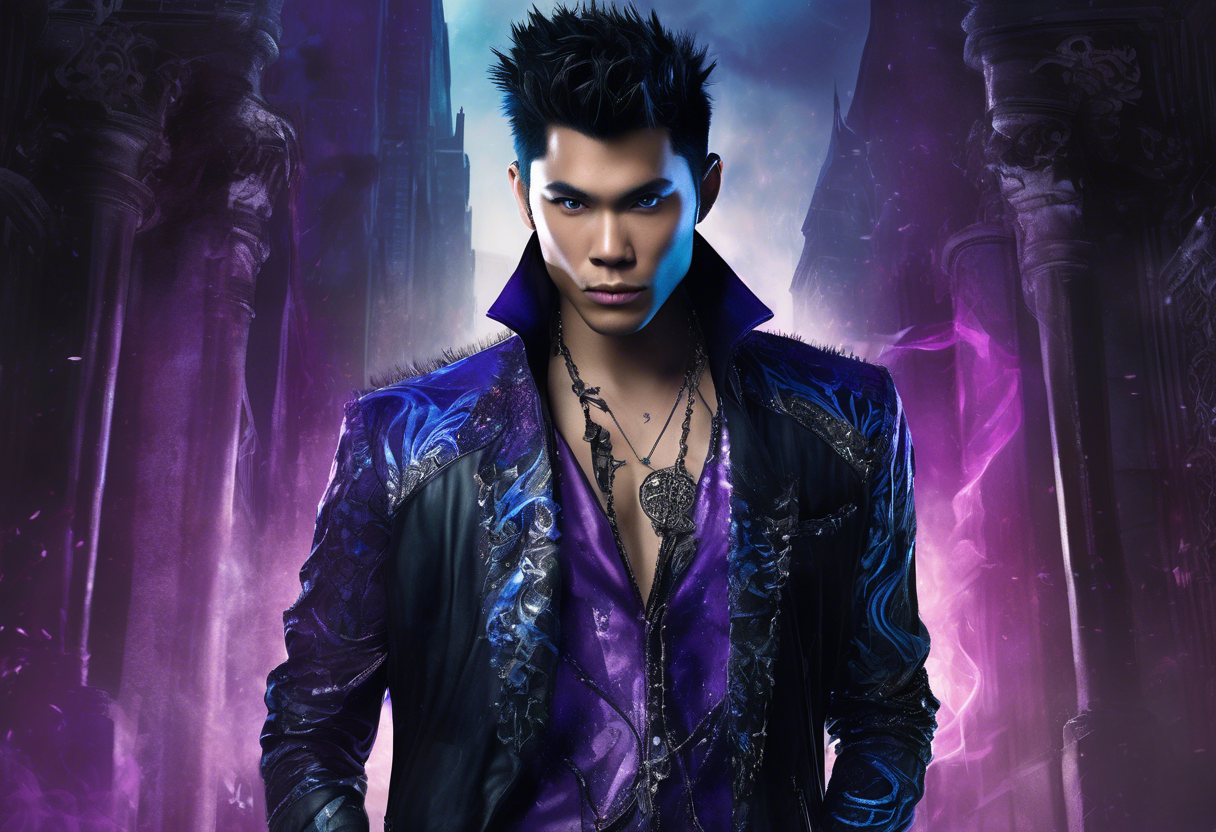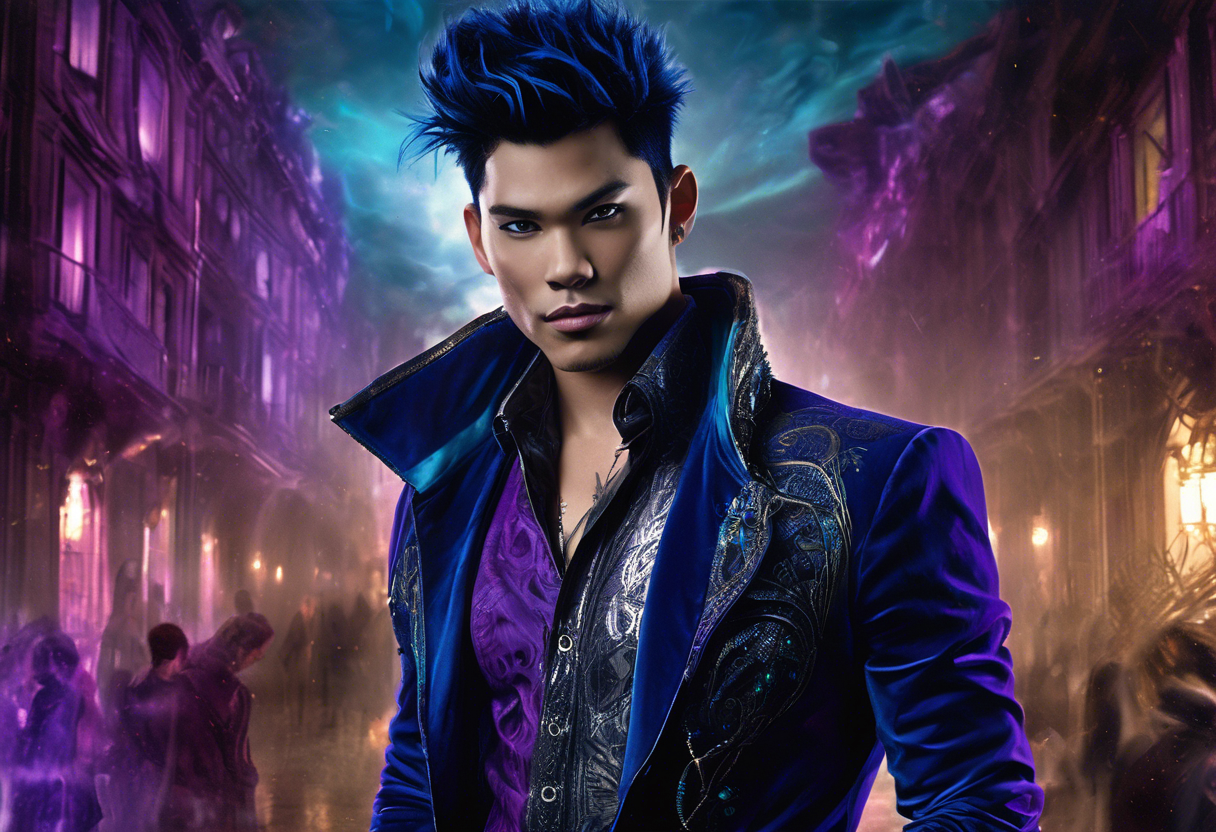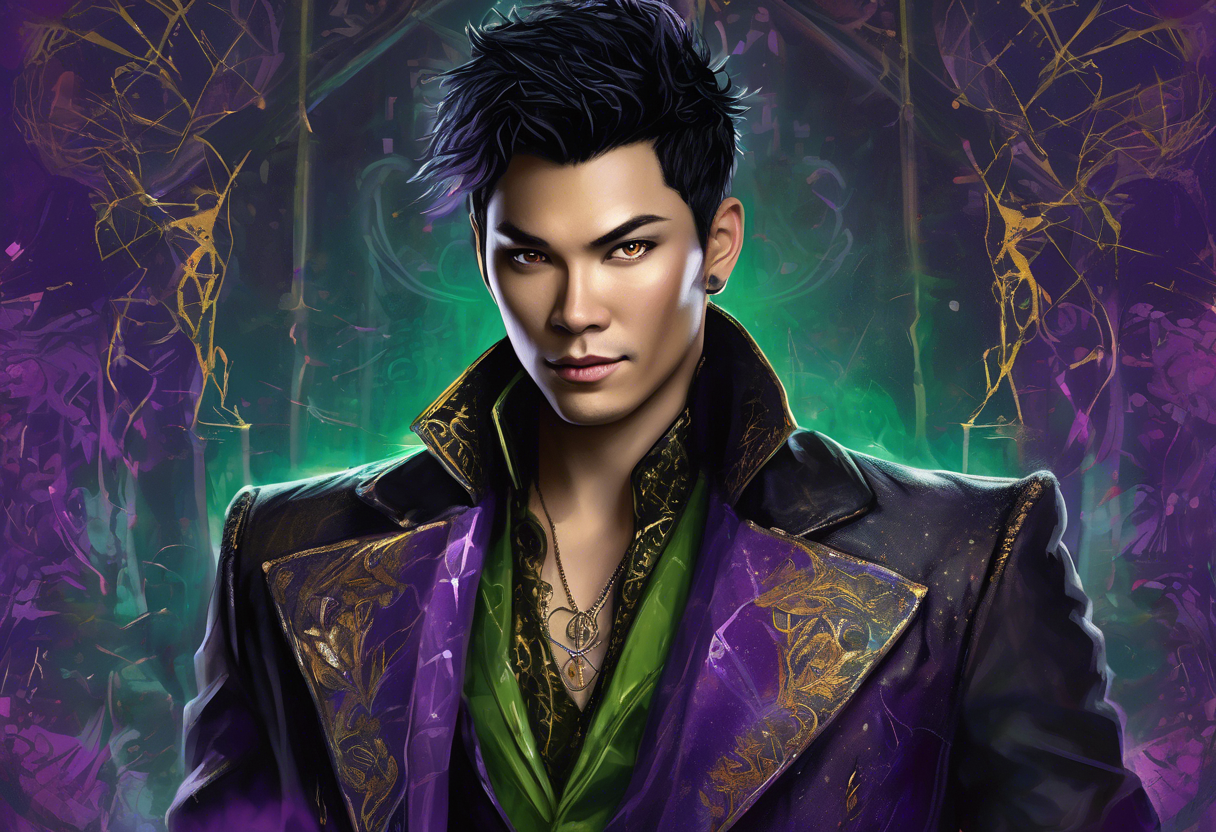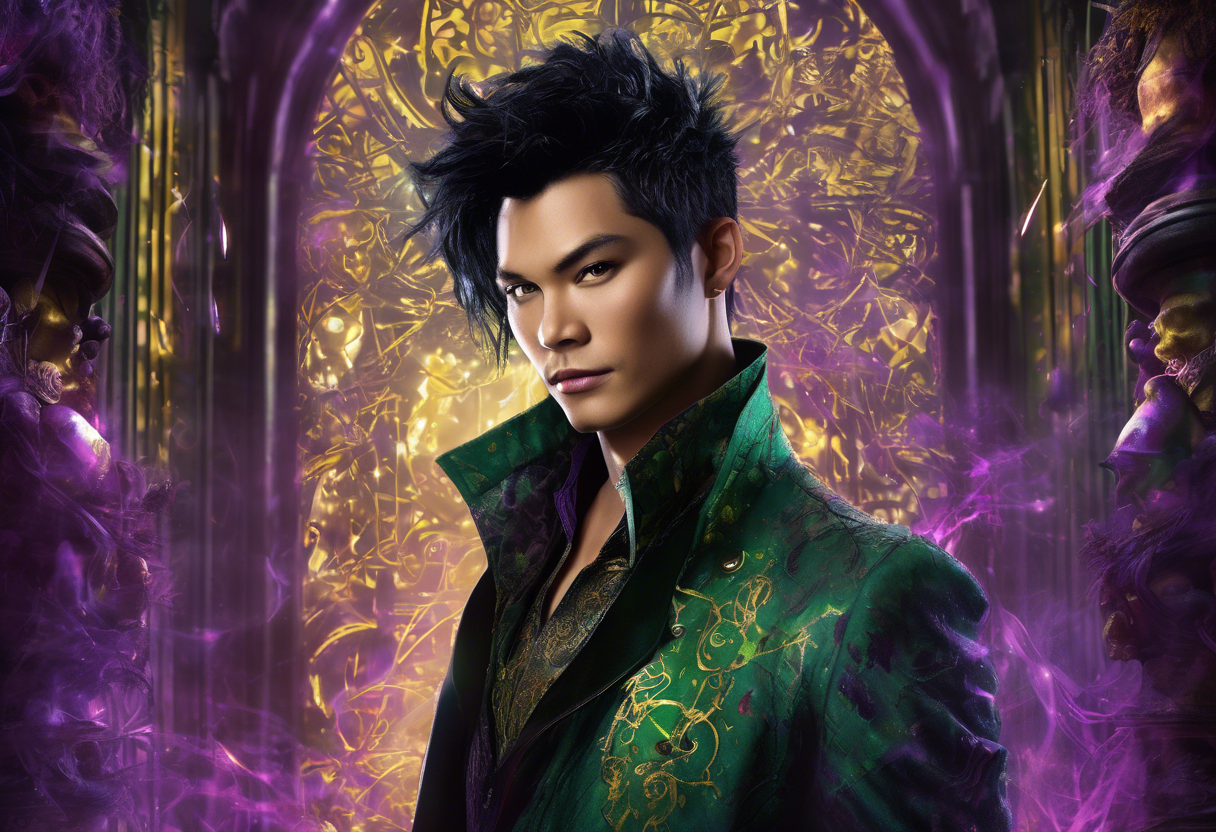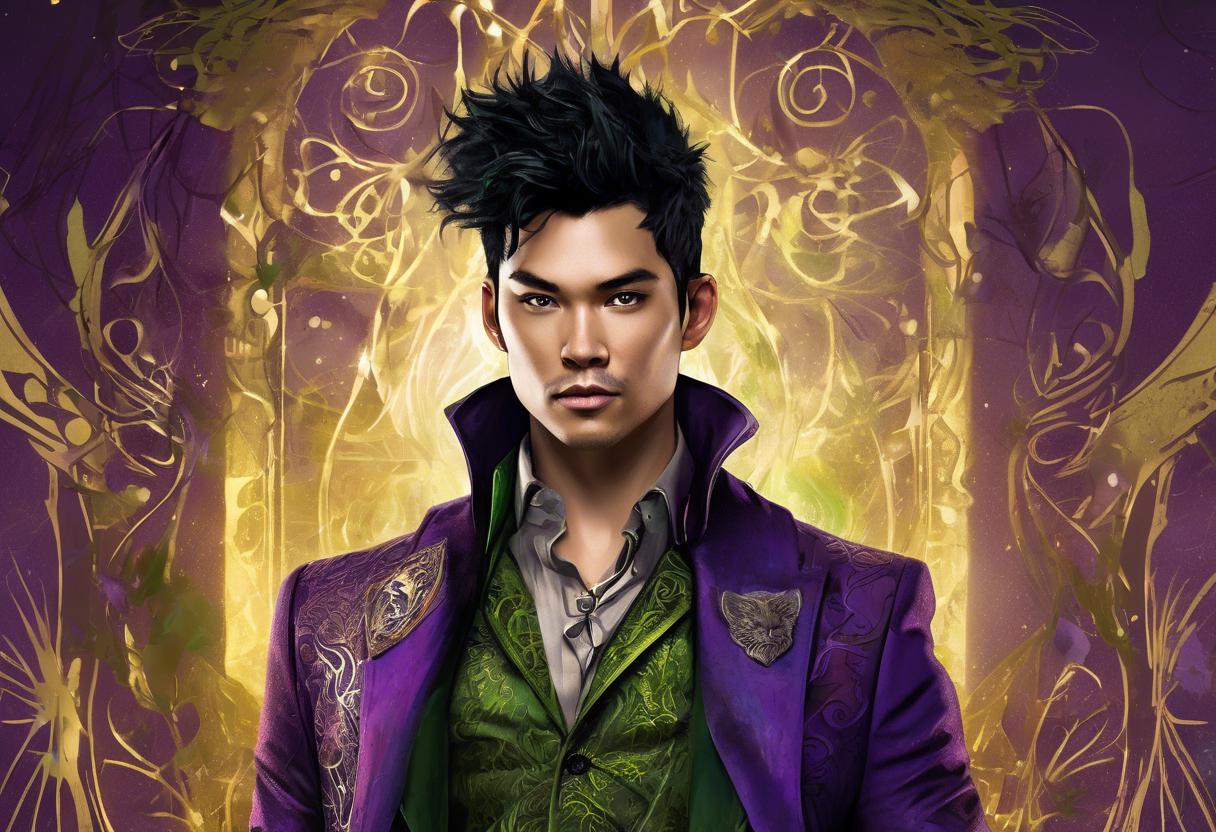Contents
Magnus Bane: The Enigmatic High Warlock of Brooklyn
Introduction
Magnus Bane, the High Warlock of Brooklyn, is a pivotal and enigmatic character in Cassandra Clare’s "The Mortal Instruments" series, which is part of the broader Shadowhunters Chronicles. With a life spanning over four centuries, Magnus has intricately woven his existence into the fabric of the supernatural world, interacting with numerous Shadowhunters and Downworlders throughout history.
Born as a warlock, Magnus is half-demon, making him one of Lilith’s children, as explained by Hodge in the series [4]. His immense magical abilities and long-standing influence in the supernatural community have earned him the title of High Warlock of Brooklyn [2].
Magnus is physically described as very tall and thin, with black hair that is often spiked and glittery, and he frequently wears makeup and extravagant attire [3]. This flamboyant appearance, however, belies a complex and deeply nuanced character who plays a significant role in the narrative.
Magnus Bane’s character is not only integral to the plot of "The Mortal Instruments" but also resonates with broader literary traditions and media, particularly in the representation of LGBTQIA+ characters. His portrayal challenges and deconstructs stereotypes often associated with gay men in mainstream media, making him a relatable and iconic figure in young adult literature [5].
Role in the Story
Magnus Bane’s storyline in "The Mortal Instruments" is marked by his frequent interactions with the main characters, particularly Clary Fray and the Lightwood family. Despite his immortal nature and immense power, Magnus is often drawn into the conflicts and adventures of the Shadowhunters.
One of the key events involving Magnus is his assistance in various magical endeavors, such as helping the Shadowhunters uncover hidden secrets and battling against demonic forces. His relationships with characters like Alec Lightwood are particularly significant, as they develop a romantic bond that becomes a central theme in the series.
Magnus’s decisions are often guided by his loyalty to those he cares about and his commitment to maintaining balance in the supernatural world. He navigates complex moral landscapes, sometimes walking a fine line between his own interests and the greater good.
Character Analysis
Magnus Bane’s personality is a blend of wit, charm, and deep emotional depth. He is known for his sharp humor and flamboyant style, which often serves as a facade for the pain and darkness he has endured over centuries [5].
One of Magnus’s most compelling traits is his resilience and ability to find joy and color in a world filled with darkness. Despite the immense pain and loss he has experienced, Magnus remains a "blazing riot of life and color, a source of joy for everyone around him" [5].
His motivations are multifaceted, driven by a desire to protect those he loves and to maintain his independence in a world where his kind is often misunderstood or feared. Magnus’s strengths include his unparalleled magical abilities and his strategic thinking, which often prove crucial in the battles against evil forces.
However, Magnus also has his flaws. His tendency to keep people at arm’s length due to past traumas and his occasional selfishness can create tension in his relationships. Despite these flaws, his character development throughout the series shows a gradual opening up and a deeper commitment to those around him.
Themes and Symbolism
Magnus Bane embodies several key themes in "The Mortal Instruments," including the struggle for identity, the power of love and loyalty, and the importance of acceptance and inclusivity.
As an LGBTQIA+ character, Magnus symbolizes the fight against societal norms and the importance of self-expression. His relationship with Alec Lightwood is a central theme that explores the challenges and triumphs of same-sex love in a world where such relationships are not always accepted [5].
Magnus also represents the theme of immortality and the weight of centuries of experience. His character highlights the complexities of living forever, including the accumulation of pain, loss, and wisdom.
Cultural Impact
Magnus Bane has had a significant cultural impact, particularly within the young adult literature community. His portrayal as a powerful, flamboyant, and deeply human character has resonated with fans worldwide.
In adaptations and spin-offs, such as the TV series "Shadowhunters," Magnus has been portrayed by actor Harry Shum Jr., bringing his character to life in a visual medium. This portrayal has further cemented Magnus’s place in popular culture, making him a recognizable and beloved character beyond the books [5].
Magnus’s influence extends beyond the Shadowhunters series, inspiring other authors and creators to include more diverse and complex characters in their works. He has become an icon for the LGBTQIA+ community, representing a positive and powerful image of gay men in media.
Critical Reception
Magnus Bane has received widespread praise from critics and audiences alike for his nuanced and compelling portrayal. His character has been lauded for challenging stereotypes and providing a positive representation of LGBTQIA+ individuals in young adult literature.
Some critics have noted the initial stereotypical presentation of Magnus, but they also acknowledge how his character evolves to deconstruct these stereotypes, making him a more complex and relatable figure [5].
There have been few controversies surrounding Magnus, with most discussions focusing on the positive impact of his character. His relationships, particularly with Alec, have been praised for their realistic portrayal and emotional depth.
Legacy
Magnus Bane’s enduring appeal lies in his multifaceted character and the significant role he plays in the Shadowhunters Chronicles. He remains a beloved and iconic figure in young adult literature, inspiring new generations of readers and writers.
His relevance in contemporary discussions about representation, identity, and acceptance continues to grow. Magnus Bane has become a benchmark for well-crafted, diverse characters in literature and media, influencing other works and character archetypes.
In conclusion, Magnus Bane is more than just a character in a series; he is a symbol of hope, resilience, and the power of love and acceptance. His legacy ensures that he will remain a cherished and important figure in the literary world for years to come.
References
- https://shadowhunters.fandom.com/wiki/Magnus_Bane
- https://shadowhunters.fandom.com/wiki/User_blog:Hubert_bane/Magnus_Bane_Character_Essay_by_GPT
- https://www.goodreads.com/characters/25798-magnus-bane
- https://www.shmoop.com/study-guides/city-of-bones-book/magnus-bane.html
- https://biblioteca.letras.ufrj.br/an-appreciation-of-magnus-bane-as-an-lgbtqia-character-in-yal/

